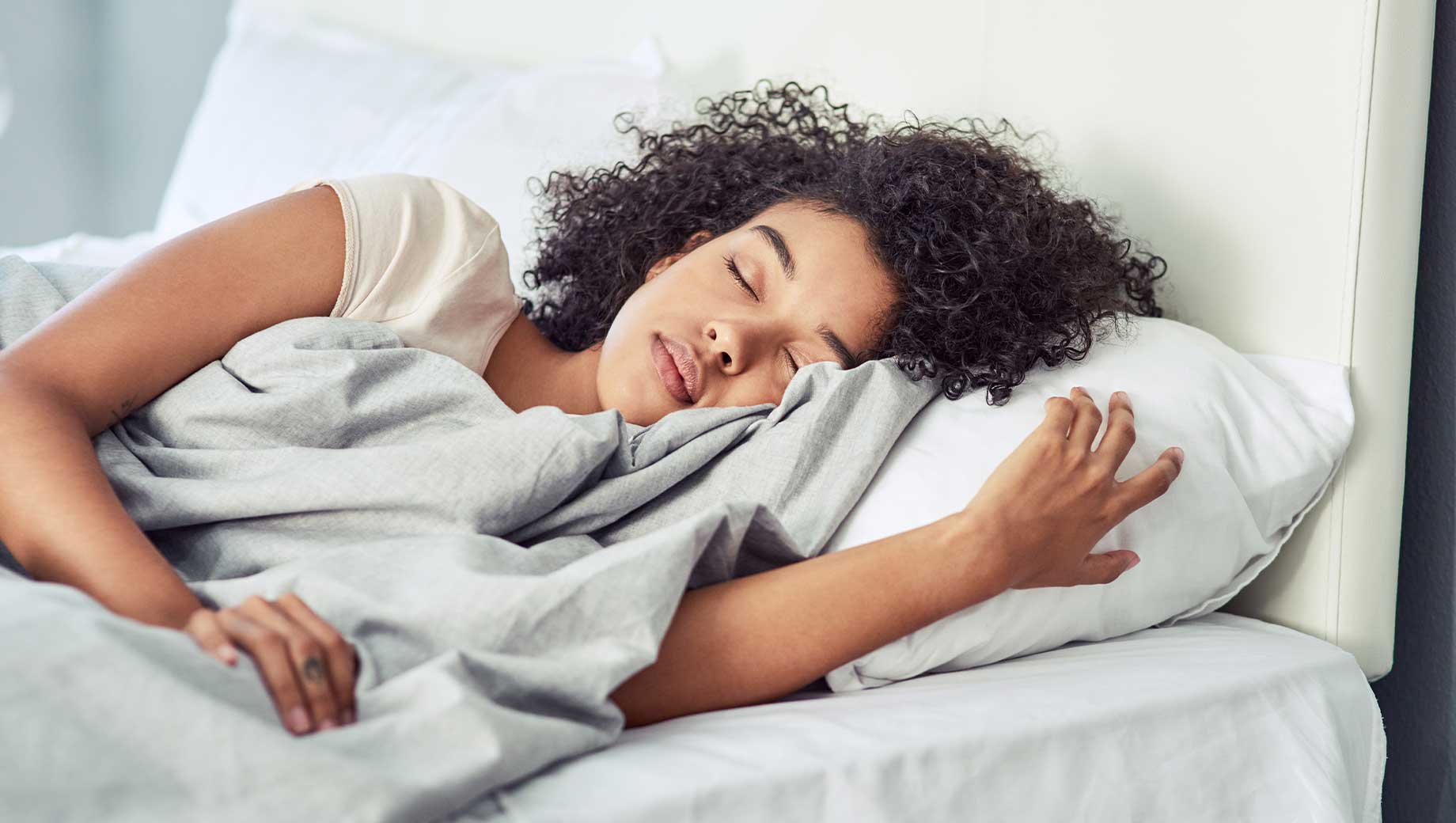Strategies to Optimize Your Sleep Environment

Why is having your bedroom designed for optimal sleep so important? The short answer – because sleep is so important! For too many of us, sleep is an afterthought, and unfortunately, our bedrooms reflect this.
Sleep impacts so many aspects of our lives – our immune systems, our performance and productivity, our mood, our safety, our metabolism, our outlook, our ability to handle stress – and so much more. If our bedrooms are not conducive to sleep, our health and overall well-being are negatively affected.
Bedroom optimization really is the first step in adopting a healthy sleep lifestyle. And a healthy sleep lifestyle can be life-changing for those who have been skimping on this biological necessity. It’s well worth the time and effort to take some time and address the following aspects of the sleep environment:
- Air Quality: Plants and fresh flowers can be visually appealing and relaxing while also removing toxins from the air. The extra touch of green from bedroom plants can be soothing as well as uplifting. Plants that can help improve air quality include ficus, English Ivy, bamboo palm, and garden mum
- Color: Decorate the bedroom with colors that are sleep-inducing – neutrals, pale greens, and blues. Some surveys have shown that people with a blue bedroom get more sleep than those with other colored bedrooms and wake up feeling happy (that’s what a good night’s sleep does for you!) Avoid loud, bright colors (especially purples, oranges, and reds) in the bedroom as these are not calming and conducive to relaxation and sleep.
- Comfort: The bed is the focal point of the bedroom and essentially serves as the vehicle for sleep. In fact, the mattress is the most important piece of furniture in the home. Shoemaker John Wildsmith famously said, “You are either in your bed or in your shoes, so it pays to invest in both.”
- Cleanliness: According to National Sleep Foundation surveys, people report sleeping better when their bedrooms are clean and comfortable and are more excited to go to bed on sheets with a fresh scent.
- Clutter: Bedroom clutter is anxiety-provoking, distracting, and stressful – which can compromise sleep quality. Unused exercise equipment, old magazines, unfolded laundry – none of these should be in the sleep environment.
- Décor: Our bedrooms need to be serene, tranquil, and relaxing. A minimalist approach to bedroom décor is probably the most calming. As far as electronics go – keep them out– especially the TV.
- Design: The bedroom should be your “sleep sanctuary.” It should be furnished and maintained accordingly. Go for symmetry wherever possible, and be sure to have something beautiful and inspiring in the bedroom so you will see it upon awakening.
- Function: Healthy sleep is the primary function of the bedroom. Considering we spend one-third of our lives sleeping, we spend more time in the bedroom than any other room in the home. It is estimated that between 40 and 70 percent of our time at home is spent in the bedroom.
- Light: The bedroom must be dark for optimal sleep quality. Even small amounts of light interfere with sleep quality. Use blackout curtains for optimal room darkening and a sleep mask as needed.
- Neatness: The bedroom should be a “stress-free zone” at all costs – no unfolded laundry, no stack of bills, no unfinished projects – those go anywhere but the bedroom. If your bedroom doubles as an office, be sure that work items can be put away (out of sight) at bedtime.
- Noise: Noise negatively affects sleep quality. Similar to a sleep disorder like sleep apnea — where breathing is repeatedly interrupted throughout the night leading to disturbed sleep — noise can wake the sleeper several times throughout the night – leading to disturbed sleep – even without the sleeper realizing it. Keep earplugs and white noise machines handy.
- Scent: Some pleasing scents in the bedroom can help a person fall asleep. Some aromatherapy agents can contribute to relaxation and sleep, including lavender, vanilla, jasmine, chamomile, sandalwood, clary sage, rose, and valerian.
- Serenity: The bedroom should give a sleeper the feeling of relaxation, calmness, and tranquility.
- Temperature: A lower core temperature and cool room are conducive to sleep. The optimal sleep environment temperature for adults is between 60 and 67 degrees Fahrenheit. (Source: https://www.sleep.org/articles/temperature-for-sleep/)
So many of us spend a great deal of time and money on kitchens, family rooms, media – but have overlooked the critical importance of the bedroom. But now that we know just how important sleep is – perhaps it’s time to pay more attention to our sleep environment.
Sleep is so good for us – in so many ways – and skimping on it only threatens our health, well-being, and quality of life. When looking for ways to get the best sleep possible, and considering the many variables that constitute good sleep, we should always begin with optimizing our sleep environment.
With a few easy steps, it is possible to transform any bedroom into a sleep-friendly bedroom – a significant contributor to sleep quality, and sleep quality is a significant contributor to life quality.
Terry Cralle, RN – Certified Clinical Sleep Educator, Certified in Clinical Sleep Health
Co-author of Snoozby and the Great Big Bedtime Battle and Sleeping Your Way to the Top: How to Get the Sleep You Need to Succeed.



